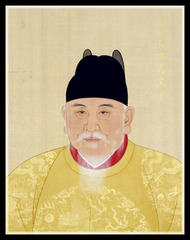


Ming period of rule 1368-1644 Ming replaced The Mongols in 1368 (Yuan…
Confucianism ideals stressing love for humanity, ancestor worship, reverence for parents, and…
1. Describe the stages in Chinese dynastic cycle. (dynasty) family that passed…
Yang Jian Ambitious ruler of northern china; brought all of china under…
Many Chinese believed that Laozi had brought Buddhism to India because A)…
provinces political districts council of ministers assistants to princes and emperors of…
Mikhail Gorbachev USSR ruler after 1985; renewed attacks on Stalinism; urged reduction…
luddites workers that attacked factories and machines they blamed for taking their…
During what period of Japanese history was Chinese cultural influence not a…
How did China become classical? The government/systems/religion became much more complex. They…
Legalism A core belief in the need to force people to behave…
Xia, shang, zhou, qin, han, sui, tang, song, yuan, ming, qing, republic,…

Hi! We can edit and customize this paper for you. Just send your request for getting no plagiarism essay
Order here